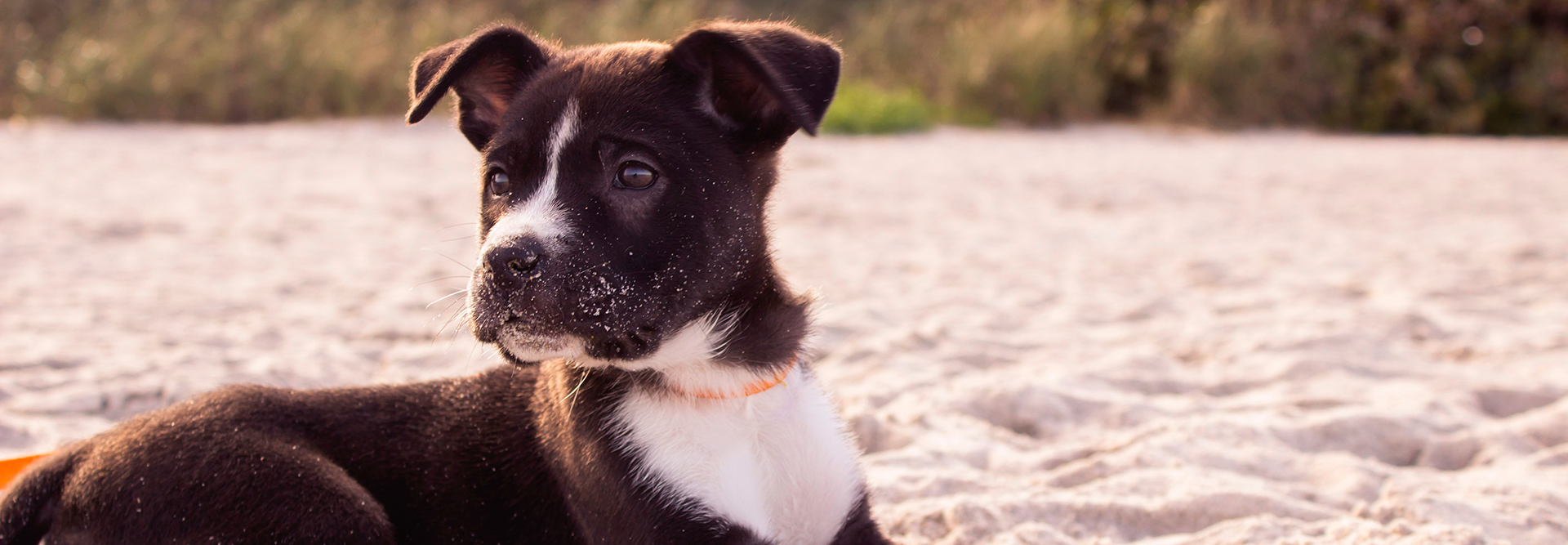
Your puppy’s mouth is full of 28 tiny razor-sharp teeth that seem to love nipping at your toes and fingers! Don’t take it personal; all puppies will do this at one point. During play time, this type of behavior is especially common. Many dog owners and trainers call it “play biting”, which is completely harmless […]
Your puppy’s mouth is full of 28 tiny razor-sharp teeth that seem to love nipping at your toes and fingers! Don’t take it personal; all puppies will do this at one point. During play time, this type of behavior is especially common. Many dog owners and trainers call it “play biting”, which is completely harmless (for the most part!).
Play biting is also normal as most puppies go through a teething stage that causes them to nip or bite at anything they can sink their teeth in, just like human babies! However, it can be really painful and annoying, especially when your cuddly friend won’t stop nipping. We understand if you’d rather not have scars and scratch marks all over your hands and feet. Fortunately, it’s something you can definitely train away with a few useful tips:
To say puppies don’t know moderation is an understatement. They’re still learning about the world around them so if they bite while playing, they may not know how painful it is for you. As a puppy owner, it’s your job to teach your puppy that bites hurt. You can do this the moment they start to nip at you.
When your puppy bites on your hand too hard, say “ouch!” or “ow! That hurts!” in a high-pitched voice. Move your hand away as you say this. Remember: canine language isn’t the same as human language. Puppies communicate through yelps, barks, and whines. When you yelp and move your hand away, your puppy will understand that you’re in pain and that they bit you too hard. Of course, if your yelp makes them bite even harder (some naughty puppies will do this to test you!), you can always stop the play session and have your pup calm down.
Sometimes, puppies need more clues than just yelping to know their bites hurt. The best way to do this is to stop playing the second your puppy bites you. Give them no response or rewards, just stop giving them attention altogether. Without the attention, they’ll understand that biting or nipping gets them nothing so they’ll be inclined to stop in the future.
Always avoid physically punishing or yelling at your puppy. Strangely enough, either of these negative responses will confuse them. They may think biting will make you pay attention to them, even if it’s negative in nature. This can act as a reward, which is not something you want! Instead, we recommend turning around and putting your hands under your armpits.
Depending on their age, your puppy is more than likely going through their teething stage. Teething is very painful for puppies so their habit of biting can be alleviating for them. Of course, that doesn’t mean you have to put up with it!
Keep your puppy’s biting habit at bay by giving them a toy or a treat that can distract them. We highly recommend a chewable toy so you can teach them what’s acceptable to bite on and what isn’t. If they ignore the toy and start nipping at you to play, stop the session immediately and follow the steps from tip #2.
Like some children, some puppies have a rebellious streak and will continue to do as they please. Do not get frustrated. Think of your puppy as a small child. If they can’t stop biting during playtime and nothing else works, place your puppy in timeout. Your furry friend’s crate is the perfect place for this. It gives them a chance to calm down and stop them from sinking their teeth in you.
Make sure to stay calm while you place them inside their crate. If you’re angry or yell, your pup may associate their crate with punishment. This can make them fearful of their resting spot and they may not want to go in at bedtime. Once your puppy is calm and cool, you can let them out and try again.
Positive reinforcement is the way to go! When your puppy is calm and plays without biting, you should definitely reward them with a yummy treat or some praises. Puppies are fond of rewards, and it’ll make them likely to follow your commands during training.
Through positive reinforcement, your pup learns that their good behavior is what you want from them. It’ll also strengthen the bond you have with your cuddly friend! Next time you play with them, you’ll notice they’ll be less likely to bite you!
Training your furry friend can be a challenge but it’s important never to lose hope or patience. Do not yell, scold, or use physical punishment to teach your furry friend anything. The best way to train your puppy is through positive reinforcement. Even when you finish your training sessions with your puppy, be sure to always give them lots of praises so that your furry bestie knows what a good dog they are! With patience and consistency, your puppy will be a well-behaved dog in no time!